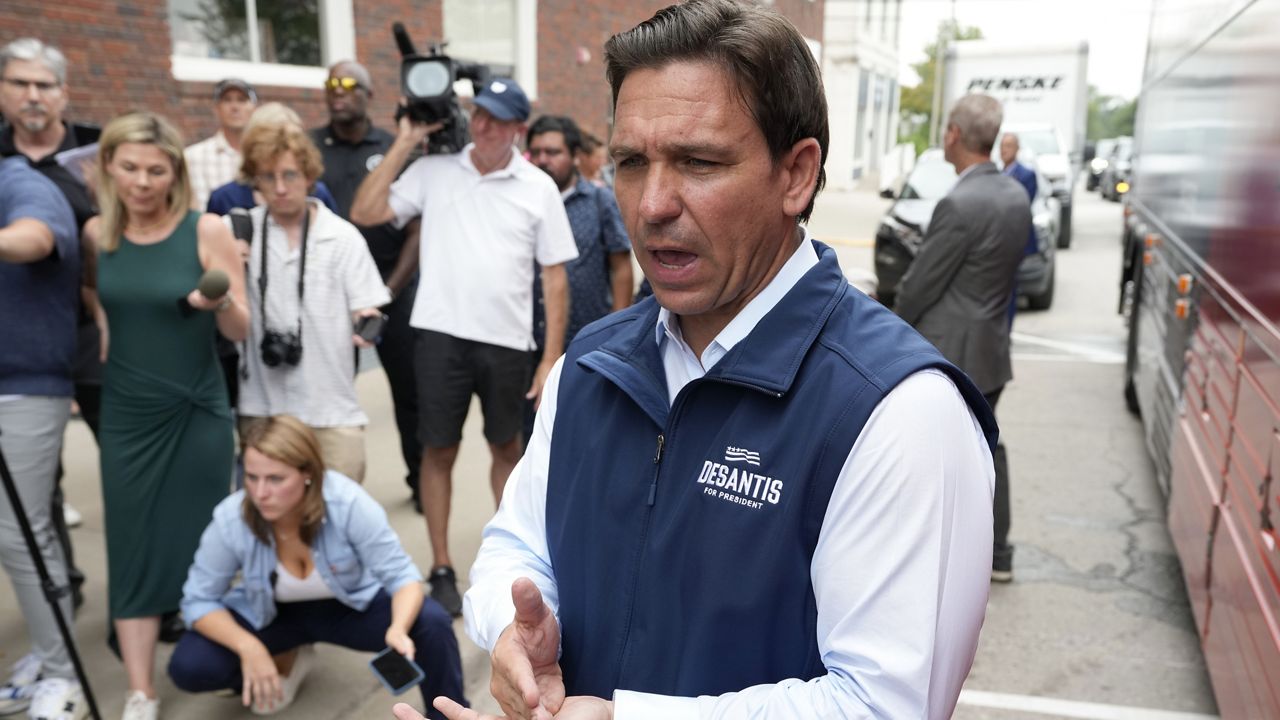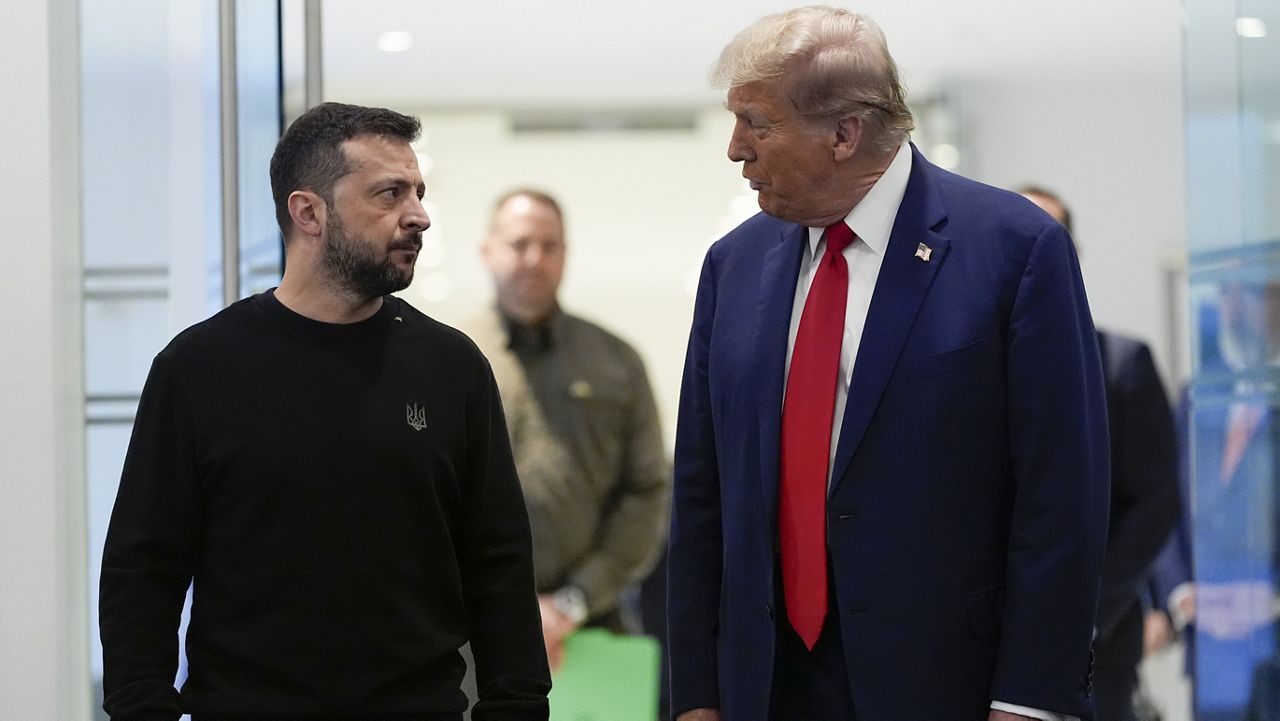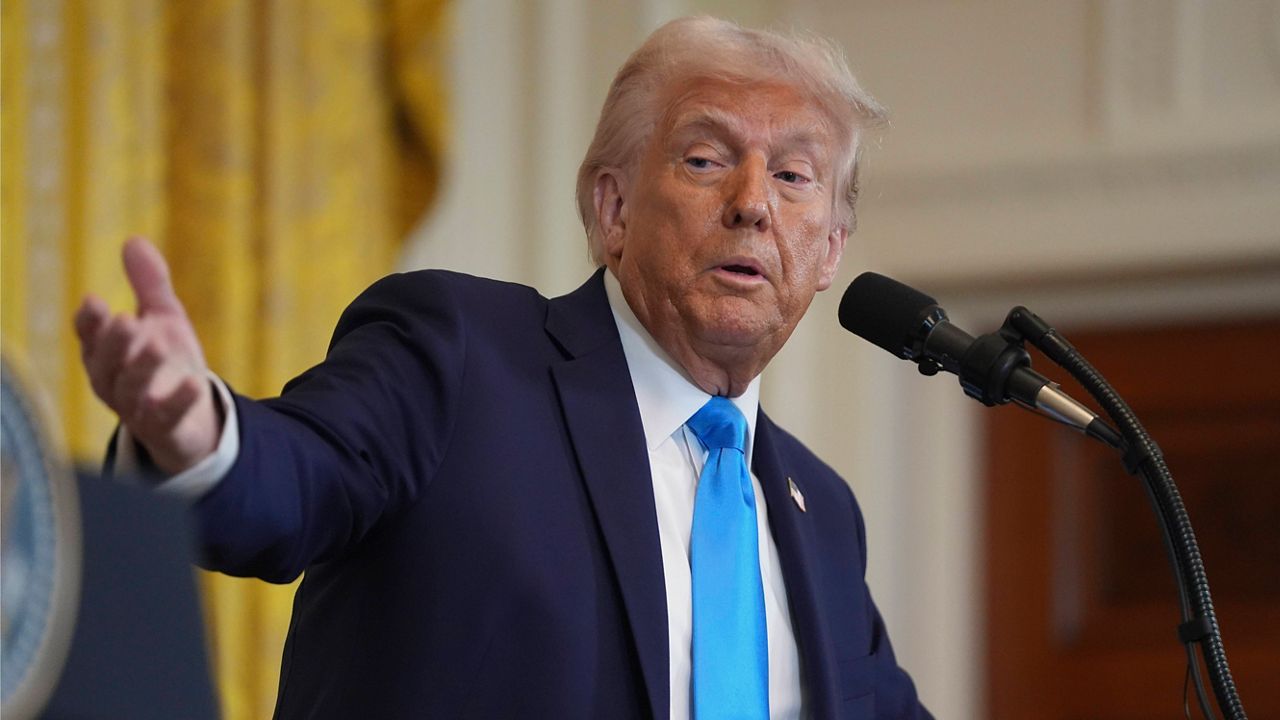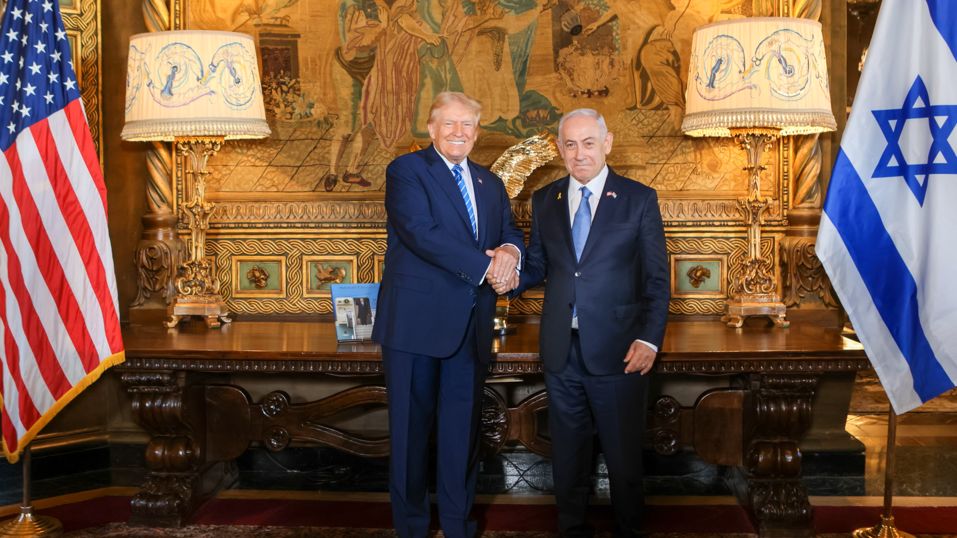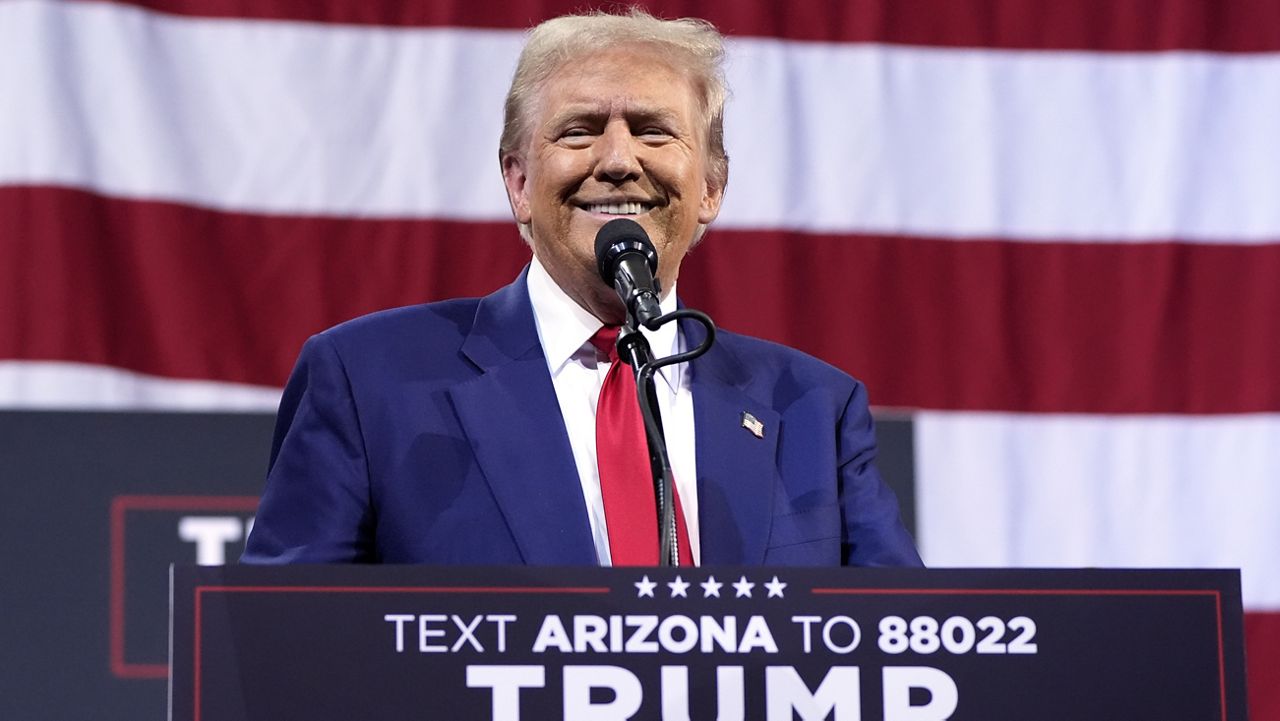Ron DeSantis largely dismissed his own decision to replace his campaign leadership team as he returned to Iowa in the midst of a weekslong reset. The Republican presidential hopeful also made no mention of the two rounds of campaign layoffs he made recently in response to unexpected fundraising troubles.
What You Need To Know
- Republican presidential hopeful Ron DeSantis is dismissing concerns about his latest staffing shakeup as he returns to Iowa in the midst of a weekslong campaign reset
- The Florida governor has declined to talk about the two rounds of campaign layoffs he made recently in response to unexpected fundraising troubles
- Less than five months before the first votes are cast in Iowa's opening presidential primary contest, a growing chorus of Republican would-be supporters is questioning DeSantis' core "anti-woke" message and his political instincts
- And new signs of tension have emerged between DeSantis' formal campaign and an allied super PAC
Instead, the Florida governor on Thursday leaned into his central message — a self-described "war on woke" — and flashed a big smile as he courted an audience of roughly 200 cheering Republicans gathered at a family restaurant for the first of four scheduled stops on his latest bus tour through the first-in-the-nation caucus state.
"We're clicking. We're doing well," DeSantis told reporters after a fiery speech, dismissing questions about the turmoil that has plagued his White House bid in recent weeks. He said the average voter is far more focused on his plans for the country than his campaign leadership. "This process stuff, I think, is way overblown."
Whether DeSantis acknowledges his challenges or not, they have not gone away.
Less than five months before the first votes are cast in Iowa's opening presidential contest, a growing chorus of would-be supporters within his own party is questioning DeSantis' core message and political instincts amid a prolonged effort to stabilize his campaign that has involved three significant personnel decisions so far — the two rounds of cuts and replacement of the campaign manager. At the same time, new signs of tension have emerged between DeSantis' formal campaign and an allied super PAC that's now planning to dramatically increase spending on paid advertising to help make up for DeSantis' financial challenges.
"It remains to be seen whether or not he can save his campaign. He's not run a particularly effective one to date, obviously," said Eric Levine, a New York-based Republican donor who has been calling for the GOP to unify behind an alternative to former President Donald Trump. "He needs to be able to speak to a broader range of issues than the culture wars. To me, that is fundamentally at the core of his problem."
That message still resonates with many Iowa Republicans, who frequently mention DeSantis as one of their top two or three picks heading into the caucus. But most successful campaigns require steady leadership and donors who are willing to stick out the tough moments — and that's where DeSantis appears vulnerable.
After cutting one-third of his staff last month, DeSantis this week replaced campaign manager Generra Peck with James Uthmeier, his chief of staff in the Florida governor's office. Uthmeier, who has never managed a campaign, was a central figure in some of DeSantis' most controversial moves as governor, including the decision to fly migrants from Texas to an island off the Massachusetts coast last year.
As part of the leadership overhaul, DeSantis tapped veteran political operative David Polyansky, a senior adviser to his allied Never Back Down super PAC, to serve as deputy campaign manager. Some close to DeSantis' operation believe that while Uthmeier has the campaign manager title and DeSantis' trust, Polyansky will be effectively running the campaign given his extensive experience in presidential politics, especially in Iowa.
While DeSantis shrugs off his challenges, his allies are aware that multiple rounds of staffing cuts and stagnant polling numbers are undermining the campaign's central message that DeSantis is better positioned than Trump to defeat President Joe Biden next fall.
Still, the DeSantis campaign tried to project optimism in a memo shared with campaign supporters and donors earlier in the week, which was obtained by The Associated Press.
"During the last few weeks, we have seen great success as a result of the changes we have made to run an insurgent campaign focused on the early nominating states," the memo says, highlighting an increased reliance on interviews with mainstream media to spread his message and a new focus on smaller, more intimate events organized by the super PAC at no cost to the campaign.
In adopting the new strategy, DeSantis is testing the limits of federal laws that prohibit direct coordination between campaigns and super PACs by leaning more heavily on the Never Back Down super PAC, which can raise and spend unlimited sums of money — unlike the campaign, which is bound by strict fundraising limits.
Never Back Down has effectively adopted the role of candidate travel organizer, having chauffeured him, his wife and children by bus to roughly 20 Iowa events over the past month, including this weekend's three-day trip. Technically, DeSantis is only a guest of the super PAC, which is paying for the transportation and setup costs.
In another shift, the super PAC is increasing its Iowa advertising investment, which was never the super PAC's primary function, in direct response to the campaign's cash crunch. Reports of ad purchases in Iowa for the coming weeks show the super PAC tripling its spending in the state.
DeSantis' increasing reliance on the super PAC comes as Never Back Down faces the prospect of financial trouble of its own. The organization's biggest individual donor, hotel entrepreneur Robert Bigelow, told Reuters last week that he would not donate any more money unless the Florida governor attracts new major donors and adopts a more moderate approach.
"Extremism isn't going to get you elected," Bigelow said.
Billionaire hedge fund manager Ken Griffin, who told Politico last year that he was ready to back DeSantis if he ran for president, has not met with DeSantis or donated to his campaign since its May launch, according to a person familiar with his thinking who requested anonymity to disclose private deliberations.
Griffin has been unsettled by DeSantis' policies about teaching gender and sexuality in Florida schools and his ongoing fight with Disney, according to the person. The Republican mega-donor is also concerned that DeSantis has been pursuing policies that undermined individual rights and liberties.
Griffin declined to comment on any particular campaign, but said in a statement that he was "assessing how the policies of each candidate will strengthen our democracy."
Meanwhile, DeSantis is showing no interest in backing off his focus on culture wars, which are popular with the GOP's most passionate voters and remained a central focus of his stump speech this week in Iowa.
Speaking to reporters on Thursday, he said he gets a lot of questions about culture and made a direct connection between cultural issues and the economy. Specifically, he pointed to his opposition to ESG — or environmental, social and governance investments that are guided by corporations' policies.
"That is taking an ideological agenda and using the economy to try to advance it," DeSantis said. "That's bad because those policies are things that most Iowans don't support and that I don't support."
DeSantis allies are also divided about his primary strategy.
The super PAC continues to stress its commitment to winning or finishing a close second in the first three states — Iowa, New Hampshire and South Carolina — while they spend big to build out a pro-DeSantis political organization in several of the so-called "Super Tuesday" states that vote on March 5. Yet DeSantis' campaign has shifted sharply toward Iowa in recent weeks.
By the end of Friday, DeSantis will have appeared at more than two dozen separate events in Iowa since mid-July. That's compared to just two events in New Hampshire and South Carolina over the same period.
On Thursday, DeSantis noted that he was touching down in his 31st Iowa county and promised to campaign in all 99 on Iowa's sprawling checkerboard before the state's Jan. 15 presidential caucuses. But when asked, he avoided predicting a clear victory over Trump, who is the early heavy favorite.
"What you have to do is you have to win a majority of the delegates, you know," DeSantis told reporters after a brief stop in Cedar County's Tipton Family Restaurant. In Iowa, he added, "I think we're ahead of where we thought we would be, thus far."




